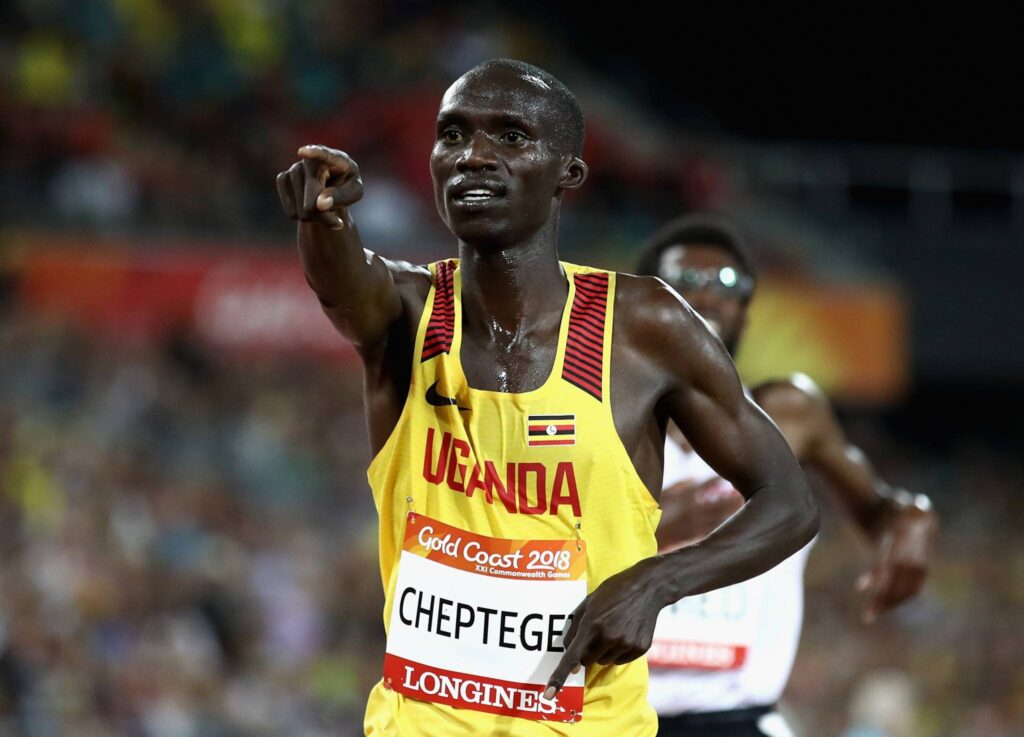Uganda’s Silverback Gets Silver
Uganda‘s Silverback Gets Silver: At the Tokyo Games in Japan, Joshua Cheptegei, Uganda‘s silverback and athletic champion, took home a silver medal for both his country and himself. During the current Olympic Games in Tokyo, Japan, Joshua Cheptegei took home the silver medal in the men’s 10000m race.
The record holder for the 5000 and 10000 meters finished in 27:43:63, trailing Seleman Barega of Ethiopia, who finished in 27:43.22. Jacob Kiplimo, another Ugandan athlete, finished third after Cheptegei.

We anticipate seeing more of Joshua Cheptegei’s brilliance on the track as the games go, along with other Ugandans competing for their nation in Tokyo. Originally scheduled for last year, the Tokyo Olympics were canceled because to the COVID-19 epidemic. After then, they were moved to this year.
Uganda‘s silverback, Joshua Cheptegei, is currently Uganda‘s ambassador for tourism and uses his position to promote Uganda internationally. We are thankful for the silver medal even though the silverback was hoping for gold going into the Olympics and lost by a few seconds.
Cheptegei was given the name Silverback to represent his excellence and tenacity in the sport. A silverback is a dominant male mountain gorilla who is in charge of a family of gorillas that typically consists of five to twenty individuals, including females and their young.
Approximately 95% of human DNA is shared by mountain gorillas, who are large apes located in mountainous forest regions. Without conservation measures, the population of these monkeys was on the verge of extinction, making them very endangered. However, because people invade their ecosystems and kill them for food or customs, they are also endangered. Diseases and other calamities they experience during their lives also have an impact on them.
Mountain gorilla trekking is the most popular activity in Uganda since the country is home to about half of the world’s mountain gorilla population. Prior to the COVID-19 outbreak, the nation was home to more than a thousand visitors who came to see the mountain gorillas in their natural habitat. Although not as concerning as one might expect, the number of tourists visiting mountain gorillas has significantly decreased since the COVID-19 outbreak.
In Uganda, mountain gorillas can be found in Bwindi National Park and Mgahinga National Park in the southwest of the country. Mgahinga is a part of the virunga region, which includes the Democratic Republic of the Congo and Rwanda, both of which are home to these endangered apes.
More than 400 mountain gorillas, or over half of the world’s total population, can be found at Bwindi National Park. The four sectors that comprise this park are home to the mountain gorillas. Buhoma, Ruhija, Rushaga, and Nkuringo are these sectors.
In Uganda, mountain gorilla trekking is conducted year-round in Mgahinga and Bwindi National Parks. In order to look for the mountain gorillas, a group of eight persons typically treks into the hilly terrain. When these primates are found, people spend an hour with them, watching, learning, and taking in their company before leaving the forest.
Depending on how far you are from your starting location and how far you are from the gorilla family, the mountain gorilla trekking trip takes between five to seven hours. Booking trekking permits at least one month in advance is recommended for those interested in the trip, which presently costs USD 700.
In the current COVID-19 period, anyone who want to walk with mountain gorillas must also have tested negative for the coronavirus at least 72 hours before the excursion. This is to keep the mountain gorillas safe because humans can easily infect them with diseases.



